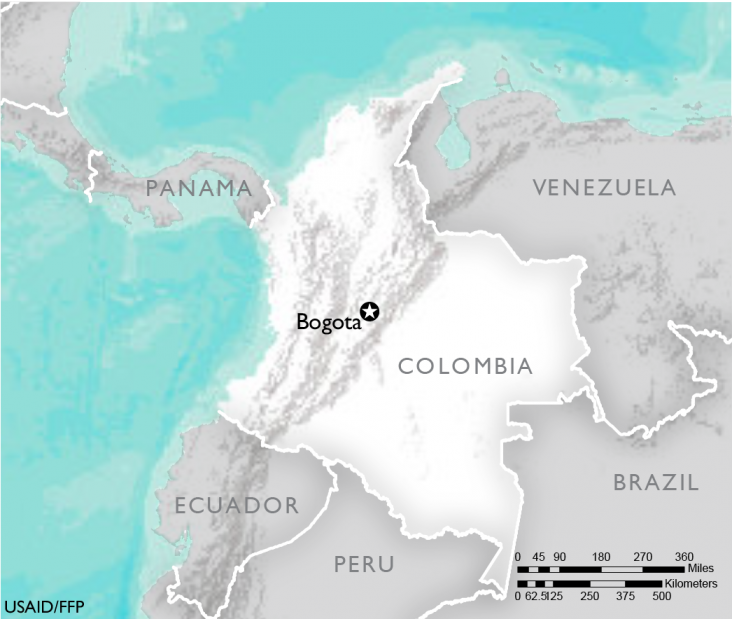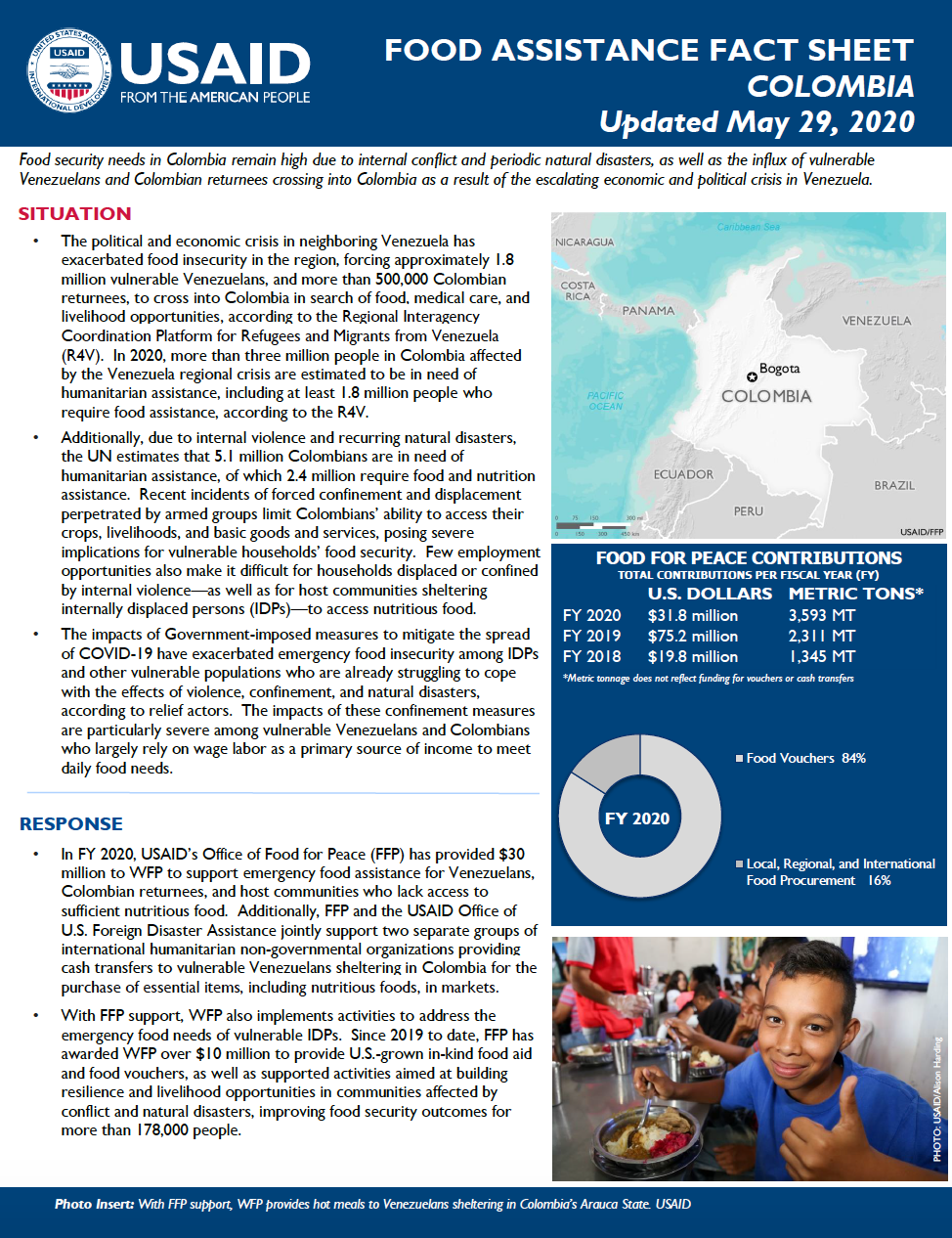Home » What We Do » Agriculture and Food Security » Food Assistance » Where We Work » Food Assistance Fact Sheet - Colombia
- What We Do
- Agriculture and Food Security
- Democracy, Human Rights and Governance
- Economic Growth and Trade
- Education
- Environment and Global Climate Change
- Gender Equality and Women's Empowerment
- Global Health
- Humanitarian Assistance
- Transformation at USAID
- Water and Sanitation
- Working in Crises and Conflict
- U.S. Global Development Lab
Speeches Shim

May 29, 2020
Food security needs in Colombia remain high due to internal conflict and periodic natural disasters, as well as the influx of vulnerable Venezuelans and Colombian returnees crossing into Colombia as a result of the escalating economic and political crisis in Venezuela.
Situation
- The political and economic crisis in neighboring Venezuela has exacerbated food insecurity in the region, forcing approximately 1.8 million vulnerable Venezuelans, and more than 500,000 Colombian returnees, to cross into Colombia in search of food, medical care, and livelihood opportunities, according to the Regional Interagency Coordination Platform for Refugees and Migrants from Venezuela (R4V). In 2020, more than three million people in Colombia affected by the Venezuela regional crisis are estimated to be in need of humanitarian assistance, including at least 1.8 million people who require food assistance, according to the R4V.
- Additionally, due to internal violence and recurring natural disasters, the UN estimates that 5.1 million Colombians are in need of humanitarian assistance, of which 2.4 million require food and nutrition assistance. Recent incidents of forced confinement and displacement perpetrated by armed groups limit Colombians’ ability to access their crops, livelihoods, and basic goods and services, posing severe implications for vulnerable households’ food security. Few employment opportunities also make it difficult for households displaced or confined by internal violence—as well as for host communities sheltering internally displaced persons (IDPs)—to access nutritious food.
- The impacts of Government-imposed measures to mitigate the spread of COVID-19 have exacerbated emergency food insecurity among IDPs and other vulnerable populations who are already struggling to cope with the effects of violence, confinement, and natural disasters, according to relief actors. The impacts of these confinement measures are particularly severe among vulnerable Venezuelans and Colombians who largely rely on wage labor as a primary source of income to meet daily food needs.
Response
Food Assistance Fact Sheet - Colombia ![]() (pdf - 265k)
(pdf - 265k)
- In FY 2020, USAID’s Office of Food for Peace (FFP) has provided $30 million to WFP to support emergency food assistance for Venezuelans, Colombian returnees, and host communities who lack access to sufficient nutritious food. Additionally, FFP and the USAID Office of U.S. Foreign Disaster Assistance jointly support two separate groups of international humanitarian non-governmental organizations providing cash transfers to vulnerable Venezuelans sheltering in Colombia for the purchase of essential items, including nutritious foods, in markets.
- With FFP support, WFP also implements activities to address the emergency food needs of vulnerable IDPs. Since 2019 to date, FFP has awarded WFP over $10 million to provide U.S.-grown in-kind food aid and food vouchers, as well as supported activities aimed at building resilience and livelihood opportunities in communities affected by conflict and natural disasters, improving food security outcomes for more than 178,000 people.
Food for Peace Contributions
Total Contributions:
| U.S. Dollars | Metric Tons | |
|---|---|---|
| Fiscal Year 2020 | $31.8 million | 3,593 MT |
| Fiscal Year 2019 | $75.2 million | 2,311 MT |
| Fiscal Year 2018 | $19.8 million | 1,345 MT |
* Metric tonnage does not reflect funding for vouchers or cash transfers.


Comment
Make a general inquiry or suggest an improvement.